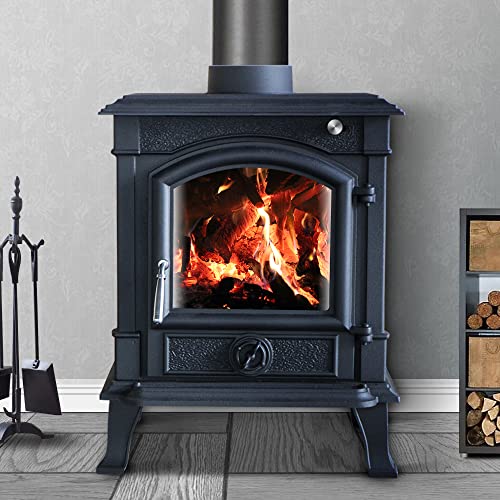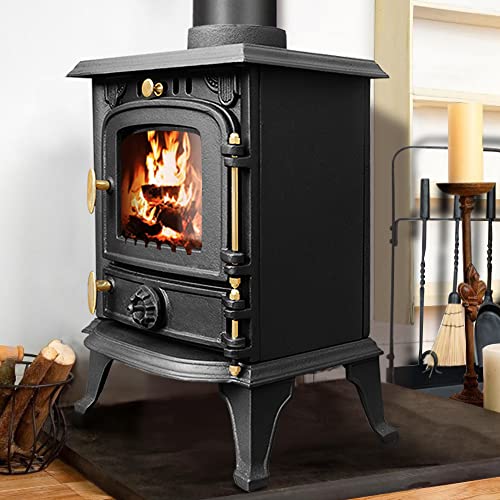This Is The Complete Listing Of Electric Stove Fire Dos And Don't…
페이지 정보
작성자 Aline 작성일24-02-05 22:49 조회17회 댓글0건본문
 Causes of Electric Stove Fires
Causes of Electric Stove Fireselectric stove fire stoves may be convenient but they can also ignite fires which can result in hundreds of thousands of dollars of damages and even death. An electrical fault can cause a fire at the stove or in a nearby room, or even in the house itself.
 You can prevent these types of fires by using the following safety measures.
You can prevent these types of fires by using the following safety measures.Damaged Electrical Outlets
Electrical outlets that have been exposed to water or burned can short circuits, causing the wires inside them to become hot and ignite. This poses a serious fire hazard and can cause your stove to catch on fire. If you spot any indications of a damaged socket switch off the power at the circuit breakers and contact an electrician right away.
Check for other warning signs, like discoloration, melting plastic or burning smells. If you hear a popping sound, it's a serious indication that your outlet is at risk and should be replaced.
Each electrical conductor is able to handle a certain amount of current. If you plug in a heavy appliance to an outlet that cannot supply enough power, it could overheat. This could cause a fire to ignite and cause damage to the wiring. It can also cause an electrical fire to your stove.
It's also a cause of risk if you have an old house with dated wiring. These systems that aren't up to date may not be able to accommodate the electrical demands of your machines, which can overload the circuit and lead to fire. If you have older wires, it's important to schedule regular electrical inspections.
The possibility of overheating a plugged-in appliance is the most common reason for electrical outlets to catch fire. The problem can arise when the heat generated by the appliance causes the cords to melt or the insulation to break down. This can be a dangerous situation since the hot wiring can ignite and ignite fires in your stove or in other appliances.
If you suspect that your stove is overheating, you must immediately turn off the power and use a small fire extinguisher to put out any small flames. If you aren't able to put the fire out, evacuate the building and dial 911 from a secure area. If you do use an extinguisher to put out a fire, remember to aim it towards the center of the fire and not directly at the flames since this can cause them to get worse.
Poor Wiring
A faulty wiring system can be a major cause in electrical house fires. Wires that are deteriorating and old can overheat and melt, causing fires. This could cause serious injuries and damage to property. To avoid issues such as this, electrical wires must be checked and repaired by skilled technicians on a regular basis. Electrical outlets that cause a shock, flickering lights, and the smell of burning wires are all indicators of faulty wiring. If you observe any of these signs you should contact an electrician immediately.
Toasters, microwaves, and ovens are a few of the most frequently used appliances that can cause a fire in a home. These appliances can cause fire in the house when connected to outlets that are not able to handle their wattage. This is especially true of older appliances. It is recommended to have a professional electrician inspect your kitchen appliances regularly and install outlets upgrades when required.
The kitchen appliances can also cause fires when they are connected to power cords or extension strips that are not upgraded to meet the requirements for wattage of modern appliances. These devices should not be left plugged in for long periods of time, or when you are away. Also, avoid cooking utensils that are close to or on the stove when they are hot and make sure that your children do not play with them or wear long sleeves on clothes that can get tangled in a kitchen appliance.
Electrical fires can be extremely dangerous and can cause serious damage to your home and belongings and also threaten the lives of your family members. Make sure you check your home regularly for any fire hazards that could be caused by electrical wiring. If you have any questions regarding the electrical wiring in your home or have any problems, don't hesitate to call an expert local Sydney electrician. They will be able to assist you with all of your electrical inspection and repair needs. They can even assist you with upgrades to your electrical panel, smoke detector maintenance, and more.
Extension Cords
An extension cord is insulated electrical wire fitted with an end plug and sockets on the other. They are available in various colors and lengths from two feet to 100 feet. They are ideal for use when electrical equipment isn't able to reach an outlet. However, they can cause fire if not utilized correctly or if cords don't get properly stored after each use.
Extension cords are a major fire hazard because they can overheat, which is especially true when the cords are used to power electric stoves. Overheating is a possibility when cords are connected to outlets that are small to be used or when they are used to power appliances that require more power than the cords were designed for. The cords may also overheat if they are used in wet or damp conditions or near oils.
Overheating the cord can cause it to melt, or carbonize. It could also cause damage to the cord's wires, which could pose the risk of fire.
Some extension cords come with safety features built-in like a grounding wire as well as a lighted connector an enclosure for connectors, and multiple sockets. Others come with a three-prong plug which can only fit into outlets that are designed to accommodate it. It is dangerous to remove the third prong from an outlet or force a plug into an outlet that is not specifically designed for it, since this could cause insulation to be destroyed and expose the wires which could result in electric shock or even fire.
Before every use of the cord, it's important to check for any damage. This includes exposed or damaged wires, or cords that are bunched, tangled, or have loose ends. The cords should also be inspected to ensure they're the correct gauge for the task. Cords that are not thick enough for the tool or appliance could overheat, creating a fire hazard. The cords must be replaced or repaired if damaged.
Smoke Detectors
The idea of removing smoke detectors may be tempting when they go off often however, this can be dangerous since it exposes you to a fire. Utilize the "test" button on smoke detectors to identify what's causing them. If you discover that it's hairspray, steam or aerosols that are causing the alarms to go off be sure to keep them out of your stove and use an exhaust fan in your kitchen while cooking.
Examine the batteries to determine if they are dead. Replace the batteries and test again. If you're still experiencing issues, consult an electrician.
The International Residential Code requires that every home have smoke detectors. Some communities have additional rules that require additional detectors in rooms that have gas or wood burning stove-burning fireplaces laundry rooms, for example. Contact your local building authorities to find out what rules apply to your community.
Smoke detectors are either photoelectric or ionization. Photoelectric detectors utilize an optical sensor that projects light into a sensing chamber, and detects smoke by reflection. Ionization-type smoke detectors utilize only a small amount of radioactive material (which does not pose a health risk) to ionize air molecules between two electrodes in the sensor chamber. When smoke is detected in the chamber, particles bind to the ions, which reduces the flow of current, activating the alarm circuit.
Both kinds of detectors are hardwired or battery-operated. Smoke detectors that are hardwired are typically plugged into a dedicated smoke detection circuit that is either part of the house's lighting circuit or an outlet circuit in the ceiling. Some detectors that are hardwired are connected to a home security system. Typically, these are connected so that if one smoke detector is activated, all the smoke detectors within the home will sound.
It's possible to install hardwired smoke detectors yourself however only if you have years of experience and knowledge of electrical work at home and electrical circuits. It is recommended to hire an experienced electrician for the installation of smoke detectors that are hardwired and other home electrical projects. Smoke detectors are subject to special rules if you have a roof that is sloped.
댓글목록
등록된 댓글이 없습니다.
 즐겨찾기 추가하기
즐겨찾기 추가하기





 관유정 커뮤니티
관유정 커뮤니티